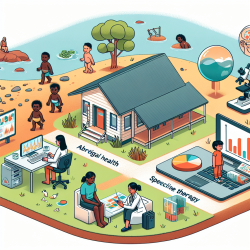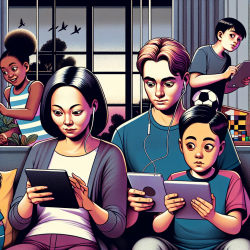Introduction
The COVID-19 pandemic has brought unprecedented challenges to educational and health services worldwide. For companies like TinyEYE, which provides online therapy services to schools, adapting to these changes is crucial. A recent study, "Codeveloping an Adolescent Health Program in India During the COVID-19 Pandemic," offers valuable insights into how organizations can enhance their services through a responsive feedback (RF) approach. This blog will explore how practitioners can implement these findings to improve their skills and outcomes.
Understanding the Responsive Feedback Approach
The RF approach, as demonstrated by Adolescent Health Champions (AHC) in India, emphasizes stakeholder engagement and adaptability. By creating a Youth Advisory Board (YAB), AHC was able to gather insights directly from adolescents, allowing the organization to tailor its programs to meet the evolving needs during the pandemic. This approach led to several key outcomes:
- Enhanced stakeholder engagement and inclusivity.
- Development of a mobile app for adolescent health.
- Creation of a more gender-inclusive organizational identity.
Applying RF to Online Therapy Services
For online therapy providers like TinyEYE, adopting an RF approach can lead to improved service delivery and client satisfaction. Here are some actionable steps based on the study's findings:
- Engage Stakeholders: Form advisory boards comprising students, parents, and educators to provide feedback on therapy services.
- Adapt Services: Use feedback to pilot new modes of therapy delivery, such as hybrid or asynchronous sessions, tailored to the specific needs of schools.
- Innovate Continuously: Develop digital tools, like mobile apps, to facilitate therapy access and engagement.
Encouraging Further Research
While the RF approach has shown promise, further research is essential to understand its full potential in different contexts. Practitioners are encouraged to conduct studies on the impact of stakeholder engagement in online therapy services, exploring questions such as:
- How does stakeholder feedback influence therapy outcomes?
- What are the best practices for maintaining engagement with diverse stakeholders?
Conclusion
The RF approach, as demonstrated by AHC, offers a valuable framework for enhancing online therapy services in schools. By prioritizing stakeholder engagement and adaptability, organizations like TinyEYE can better meet the needs of their clients and improve therapy outcomes. For those interested in delving deeper into the study's findings, the original research paper can be accessed here.










